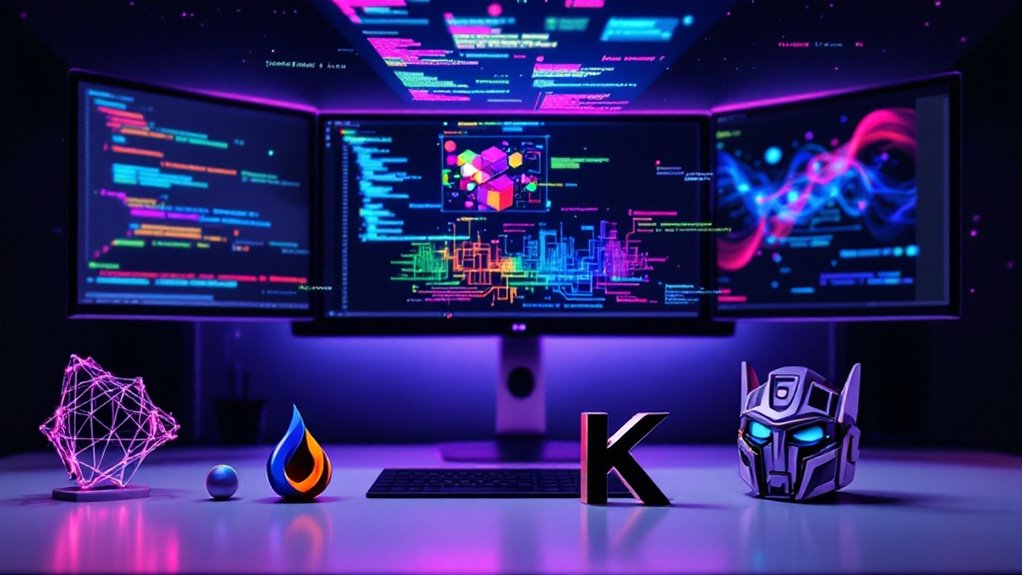Gemini is Google’s advanced multimodal AI that processes text, images, audio, and code simultaneously—think Swiss Army knife for artificial intelligence. It comes in three flavors: Ultra, Pro, and Nano. This quiet revolution is reshaping how businesses automate content, analyze data, and integrate AI capabilities. Beyond impressive coding skills, Gemini’s pushing competitors to up their game while raising thorny questions about responsible AI use and data privacy. Stick around to discover how this digital chameleon might transform your relationship with technology.
Revolution isn’t always loud—sometimes it arrives as quietly as a new software update. Google’s Gemini represents exactly this kind of silent paradigm shift in the AI landscape, arriving with the understated confidence of a chess grandmaster who knows they’re about to change the game.
Gemini isn’t just another language model with a fancy name. It’s Google’s advanced multimodal AI suite available in three flavors—Ultra, Pro, and Nano—each designed to handle different complexity levels. Think of it as the Swiss Army knife of AI tools, except this knife can simultaneously understand your doodles, decipher your rambling voice notes, and write code while you’re still trying to explain what you want.
Multimodal mastery in three flavors—because your AI should be smarter than your explanation of what you need.
The multimodal capabilities are where things get interesting. Unlike your ex who couldn’t multitask their way out of a paper bag, Gemini effortlessly processes text, images, audio, and code together. It can analyze a music sheet, generate creative content across formats, and translate languages with the ease of someone who grew up multilingual. With its focus on seamless multimodality, Gemini excels at processing various data types in a unified, integrated manner. With versions like Gemini 2.5 Pro offering enhanced performance, users can expect even more sophisticated reasoning and problem-solving capabilities.
For businesses and developers, Gemini offers a playground of possibilities. Companies can now automate content generation and data analysis with impressive accuracy, while developers get access to APIs that make integrating advanced AI feel less like rocket science and more like assembling IKEA furniture—challenging but doable. The model’s exceptional performance on coding benchmarks makes it a particularly valuable resource for software development tasks.
Society-wise, we’re looking at transformation across creative industries, global communication, and knowledge work. Gemini is redrawing the boundaries between human and machine contributions, raising important questions about responsible AI use and data privacy.
*Who would’ve thought our biggest ethical dilemmas would come from something that fundamentally started as a fancy text predictor?*
As Gemini continues evolving, it’s pushing the entire field forward—raising standards for how AI processes diverse data types and forcing competitors to up their game. The quiet revolution is underway, and whether we’re ready or not, AI like Gemini is reshaping how we think about artificial intelligence itself.









